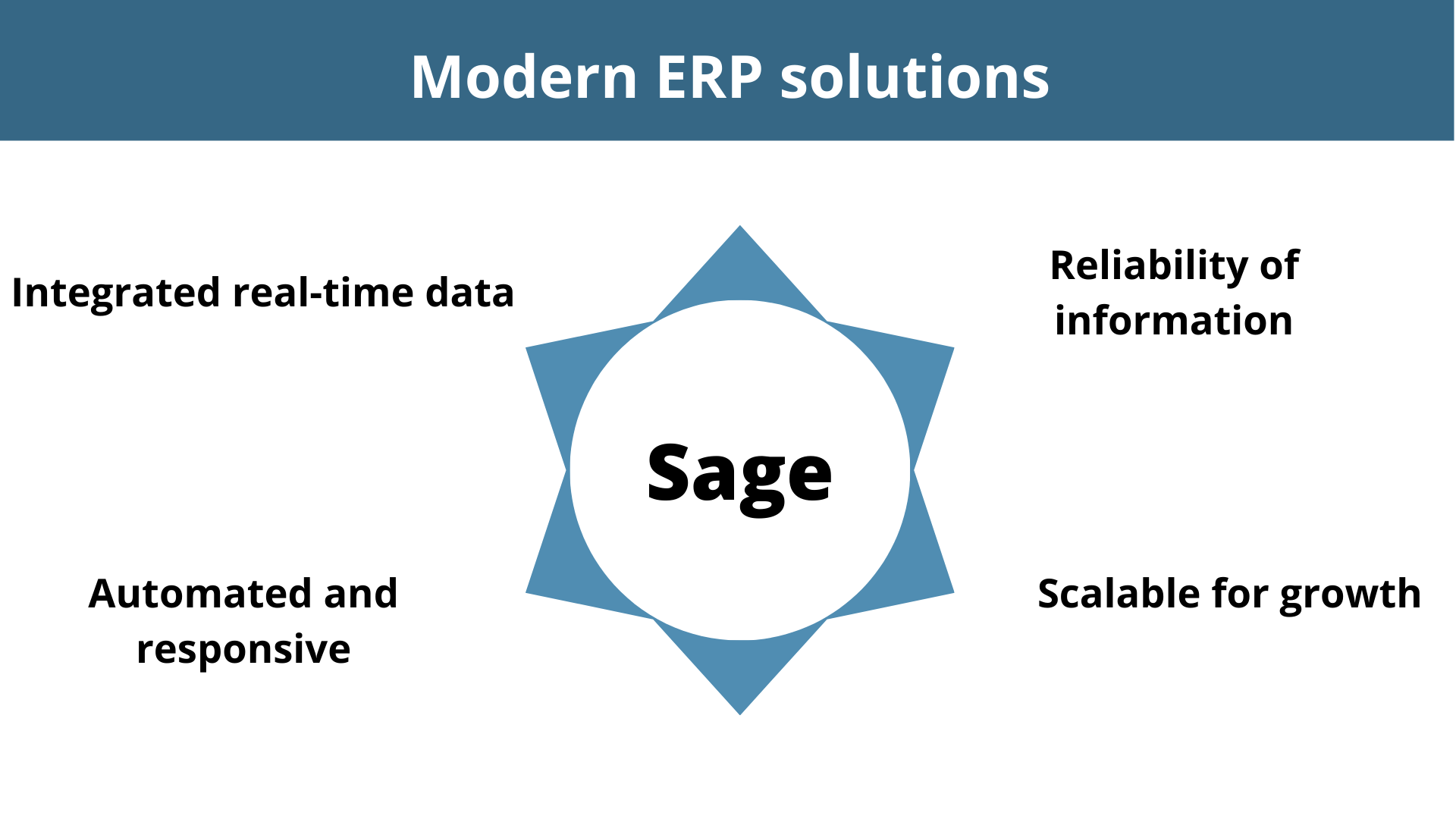AI Shaping the Future of ERP Software
Artificial intelligence is improving and becoming more powerful. Organisations are investing in AI with machine learning and analytics to make business data more useful. It influences every sector, from unemployment rates to economic growth, productivity, inequal income and many more. AI is used widely but only slightly used. We cannot deny that because of automation, there is job displacement, and humans are forced to innovate and create more jobs.
AI significantly impacts every software in the market, including ERP software. AI will have an effect on business operations to control and make them function brilliantly. A study says that currently, 77% of the devices are enabled by AI globally.
Impact of AI on different industries
Customer and operational data is a priority to the business. So wherever these aspects are present, AI is enabled to bring efficiency and productivity. In any industry, AI has a positive impact on helping any business to achieve growth. Its application is a must for process-heavy and data-intensive sectors where future predictions are mandatorily required for seamless operation.
AI in Manufacturing
This sector already uses predictive analytics and augmented reality tools. But the application of AI and machine learning to the business will help to take a giant leap into an enhanced digital future to achieve the desired growth and progress.
AI’s integration with the ERP systems is a boon to boost operations. It helps take preventative measures for the company by analysing large amounts of historical data. This will allow businesses to make the right strategies for a better future for the industry.
AI in Retail
In retail, AI has a significant impact on changing how it operates. Tools like augmented reality and virtual reality can be used for advertising. In the e-commerce industry, immersive product visualisation improves the shoppers’ experience. Now we have chatbots to engage in conversation round the clock to answer customer queries. In addition, it is efficient to capture the customers’ emotions based on their responses. AI here will help give accurate, personalised responses to customer queries.
AI-enabled ERP system
As said before, AI will transform the ERP system’s functionalities, helping businesses secure their future seamlessly. It will change the way ERP solutions perform their functions.
AI is a smart technology to analyse and captures user behaviours pattern and performs all tasks automatically and quickly whilst maintaining accuracy. To experience this level of automation, you need to prepare your business for all these technological advancements. Enumerated below are some merits of AI-based ERP systems.
- Routine automation of all the business functions.
- It aids the business in making optimal decisions for the future.
- AI is an enhanced technology performing high-level strategy, which other machines cant do.
- Enhances user experience through personalised interactions.
- It can identify unwanted inferences that are difficult to catch manually.
<<<Also read: How Artificial Intelligence is shaking up the ERP Landscape?>>>
How is AI altering the way ERP functions?
AI integrated with an ERP system is a compelling business management solution for all businesses. Here are a few benefits of combining these two technologies.
Identify and analyse complex data patterns
AI has the capability to adapt and learn. It deeply analyses the complex data looking for new patterns flowing through the system. AI avoids the repetition of data mining, each time, it goes through the same historical data and seeks a new pattern. It assists in planning, problem-solving and creating strategies for the business. AI, apart from capturing data patterns, it can also extend to drive more robust and more efficient operations.
Enhanced forecasting models
Warehouse management and supply chain operations are significant components of the business. AI can help with the predictions of these two operations. Traditional ERPs will need help keeping up with the supply chain rules and trends. So it is not reliable.
Modern ERP, when integrated with AI, can improve predictions by measuring historical data. For example, in production, it can analyse the supply-demand patterns or trends in the market. This helps the company to avoid overproduction or underproduction of goods. AI can
In addition, AI can help identify inefficient processes and aid in rectifying functions. When there is efficiency in the operations, it ultimately reduces unnecessary operational costs and resource wastage.
AI in warehouse operations can help managers with demand forecasting to prepare their employees to tackle any disrupted supply chain operation.
In sales, it can analyse precise and granular data, which helps the entire sales team to target more feasible leads, eventually improving conversion rates.
Precise auditing and accounting software
ERP software is an intelligent solution to manage the accounting and financials of the company. Companies rely on it for accounting, auditing and financial document preparation.
AI-based ERP system helps spot any issues like irregular data entry or unusual transactions. Plus, it can analyse all the transactions of users and vendors to find if there is any financial risk involved.
AI can also help businesses improve forecasting accuracy, similar to the warehouse’s smart predictions.
Than predicting a profit or loss, AI can do more, like leverage internal and external data drivers or look for trends that are relevant and supports your forecasting.
Internal data includes past financial performance, companies, current backlog, upcoming product releases, market opportunities etc. The financial planning team (Fp&A) should have all these forecasts while making financial strategies. External data is beyond the company’s control. It includes fluctuating commodity prices, supply chain effects and many more.
Advanced HR operations
ERP solutions almost all offer basic HR functionality. AI provides analytical features that enhance amplifies HR functions to a great level. It can help HR to analyse employee performance to make decisions on rewards and compensations. Plus, it reduces the complexities of the recruitment process by using the applicant data to examine the skills and experience.
Improved Customer service
If any business wants to give excellent customer support, then robust data is required. The company requires quick access to customer information regarding the buying pattern to provide an excellent experience to the customer. AI can help with customer data, with this information, the customer executive can provide the best support.
Wrapping up, AI help in providing better forecasting and predictions, which is widely beneficial for business operations and decision-making. Automation is the future of any business. AI and machine learning technology, it is a game changers for businesses.
Sage X3
Sage X3 is an excellent business management solution for all businesses. It is customisable to any industry-specific requirements. It streamlines all core functions of the company and reduces unwanted expenses. Businesses can be well organised and controlled with this intelligent solution. It is expansive and extensive to third-party plug-ins and technologies. Implement this brilliant solution to structure your business and increase productivity.
Sage Software Solutions is a leading IT company with an array of advanced ERP Software solutions. Our proprietary products — Sage X3 and Sage 300, will help you cut operational expenses, improve business productivity, increase operational efficiency, forge robust customer relationships, and strengthen associations with vendors, suppliers, and distributors. So, if you are looking to reinforce your business fundamentals and emerge as an industry leader, then please schedule a call with one of our sales representatives.





